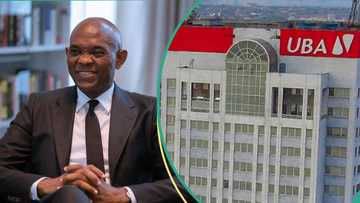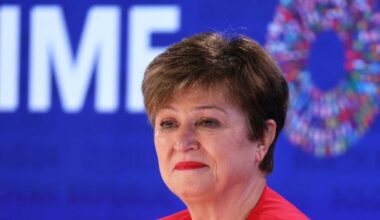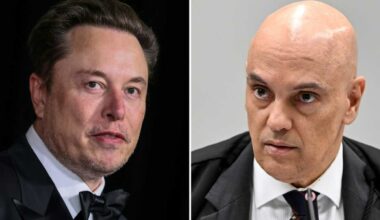- The CBN has explained that EFEMS is rooted in the understanding that trust is essential to central banking
- Cardoso reiterated that the goal of the CBN’s move was to enhance oversight of foreign exchange activities
- He claimed that making difficult and sometimes contentious decisions is a common part of being a leader
Legit.ng journalist Zainab Iwayemi has over 3-year-experience covering the Economy, Technology, and Capital Market.
The Governor of the Central Bank of Nigeria, Olayemi Cardoso, has said that the Bank’s decision to implement the Electronic Foreign Exchange Matching System (EFEMS) is rooted in the understanding that trust is essential to central banking.

Source: Getty Images
He said this while addressing members of the Harvard Club of Nigeria in Lagos at the weekend on the topic: “Leadership in Challenging Times: Restoring Credibility, Building Trust, and Containing Inflation.”
Cardoso restated that the CBN’s decision was intended to improve monitoring of foreign exchange operations and give more accurate transparency, according to a BusinessDay report.
He said,
“Trust is the currency of central banking. If the public loses trust in the institution, the efficacy of its policies diminishes. Our decision to implement the Electronic Foreign Exchange Matching System (EFEMS) is rooted in this understanding.
“By enhancing transparency and providing more accurate oversight of forex transactions, we send a strong signal that the CBN is serious about fair and efficient markets,” he added.
The CBN governor told his audience that being a leader, particularly one who oversees a central bank, frequently entails making tough and occasionally controversial decisions.
He emphasized that the Bank is an organization that listens and isn’t scared to reevaluate choices if they don’t align with its initial goals.
“In the face of economic challenges, it is imperative to focus on core objectives—restoring the credibility of the institution, building trust in the financial system, and, most critically, containing inflation. These are not just strategic goals; they are foundational to any meaningful recovery,” he said.
Speaking on his voyage on the saddle, Cardoso recalled that upon assumption of office, he recognized that the credibility of the Central Bank of Nigeria (CBN) had to be the underpinning of the activities he and his team did.
He said, “Without credibility, no policy, however well-intentioned, can succeed.
Floating the naira, a decision met with considerable public criticism, was necessary to bring the official exchange rate closer to market reality. The disparity between the official and parallel rates had encouraged arbitrage and speculation, eroding trust in the market.
“Credibility is earned by consistency. The decision to close this gap, while painful in the short term, sent a message to market participants that the CBN was committed to transparency and sound monetary policy,” he added, noting that speculative trading had been reduced, and stability was gradually returning to the currency markets.
He recognized that the CBN had not yet reached its goal, but stressed that keeping inflation under control remained the Bank’s primary objective. He did, however, emphasize that the CBN was heading in the right direction as seen by recent decreases that the National Bureau of Statistics (NBS) announced in July and August 2024.
CBN sells $543.5 million FX
Legit.ng reported that the Central Bank of Nigeria has stated that it sold about $543.5 million at N1,540 and N1,580 per dollar to dealer banks between September 6 and 30, 2024, the equivalent of N844.92 billion.
The apex bank said this in a statement signed by Omolara Duke, its Director of Financial Markets Department, in Abuja.
She disclosed that the bank conducted the sale through two-way quotes in the FX market to reduce observed volatility caused by high FX demand for commodity import and season forex demand.
PAY ATTENTION: Сheck out news that is picked exactly for YOU ➡️ find the “Recommended for you” block on the home page and enjoy!
Source: Legit.ng









